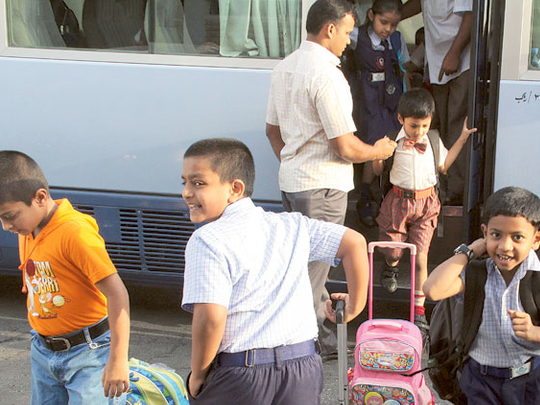
Abu Dhabi: Private school principals across Abu Dhabi must now immediately report any incidents of bullying, or physical and mental abuse that occur within the school premises.
The requirement is part of a new set of regulations announced by the Abu Dhabi Education Council (Adec) at a press conference in the capital on Monday. The directives, which were approved by the Abu Dhabi Executive Council, have been in place since February 12 this year (2013), senior officials said.
In addition to the focus on child safety, the regulations also call for each private school to have a board of governors to supervise its development and operations.
“The new regulations will provide more educational choice and opportunities for pupils…, while establishing clear and transparent criteria for private school operations,” said Hamad Al Daheri, executive director of private schools and quality assurance at the Adec.
“They will also encourage competition among private schools through the inspection system, in addition to serving as a legal document that outlines the rights of all parties, including schools, principals, teachers, investors, operators, parents and pupils,” Al Daheri said.
The emirate of Abu Dhabi currently has 185 private schools, with nearly 200,000 pupils enrolled across them. This represents two-thirds of all pupils in the emirate. The schools provide education in 15 different curricula, including American, British and Indian systems.
According to details revealed at the conference, the private school standards include 87 articles aligned with both federal and Abu Dhabi emirate standards. They cover topics such as licensing, health and safety, management and accreditation.
While licensing procedures have been made clearer to assist investors, private school teachers must now undergo 25 hours of professional development each year.
The directives also include a new requirement for private school teachers to be certified by the Adec, thus ensuring teaching quality in the emirate, Al Daheri said. Educators must also meet certain standards to be appointed as principals and other school leaders.
“This licensing for teachers and leaders will be implemented gradually. In the meantime, schools will be trained on all the guidelines,” Dr Mariam Al Ali, head of policy at the Adec’s policy planning and performance division, told Gulf News.
Each phase of training coincides with its implementation across schools. The first phase will be applied in the 2013-2014 academic year, during which schools will be familiarised with licensing procedures, health and safety and core values. The second phase, which will be undertaken in the 2014-2015 academic year, will focus on management and student affairs, while the final phase, during 2015-2016, will cover school governance, accreditation and building requirements.












